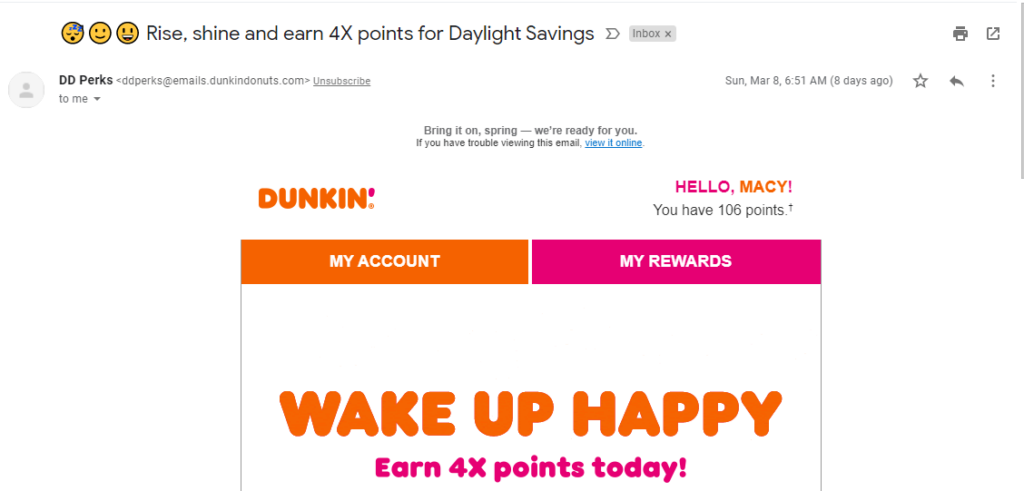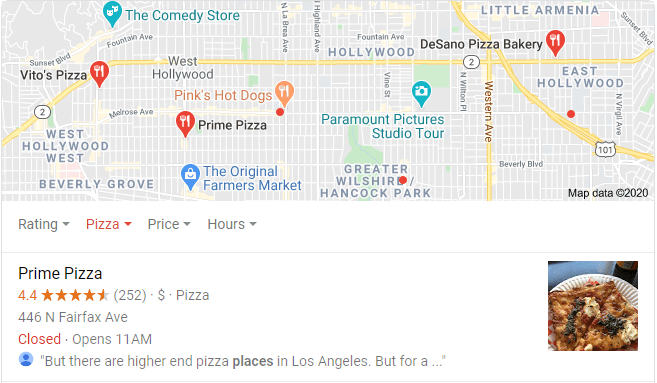![]()
Macy Storm
![]()
Senior Content Creator
Wondering how to plan a marketing budget? Creating a marketing budget for your company may seem daunting, but it doesn’t have to be. A budget for marketing plans helps keep your strategy on track with your company’s overall finances, so you can reach your business goals.
On this page, we’re diving into six easy steps for how to create a marketing budget for 2024 to make your next planning session a breeze! So, keep reading!
Here’s a quick overview of everything we’ll cover on this page:
Download our guide to learn how to plan your budget, set goals, track performance, and more!

A marketing budget is an outline of the costs your company will spend to market or promote your brand, products, or services. A budget in marketing covers all the expenses of your marketing strategy for a finite period of time, which could be anywhere from a quarter to a year.
Now that you know why a marketing budget is essential, it’s time to look at how to prepare a marketing budget and prioritize it. Check out these six critical points you’ll want to establish to set up your marketing budget:
Every guide on how to create a marketing budget will say that you must establish your business’s goals — and it’s true! You need to know what you want to achieve, so you can set a budget that allows you to achieve those goals. You can set goals that focus on:
When you set your business’s goals, make sure they’re specific and smart. You don’t want to set a goal like “increase sales.” It won’t give you a precise target to work towards and achieve.
Instead, set a goal like “Increase sales by 20% by the end of the year” This goal is easily measurable and gives your team something precise to achieve. It’ll also give you a concrete reference point when budgeting for marketing because you know how much you want to increase sales by and the timeline for achieving that increase versus just knowing that you want to increase sales.
If you want to know how to prepare a marketing budget properly, start by adding your overall business goals so you can invest in the right marketing methods to help you reach your goals.
When you create your marketing budget plan breakdown, you want to establish your sales funnel. Your sales funnel is a critical component of your marketing budget because it determines where you’re going to spend your money. Your sales funnel is the process your audience goes through to become a paying customer. A typical sales funnel will have four stages:
Understanding your business’s sales funnel helps you see where you may need a digital marketing strategy to help you keep more people from falling out of the funnel.
For example, let’s say you notice that your business’s funnel has a ton of people at the consideration stage, but very few make it to the decision stage. While some drop-off is natural, you notice that the decline is more significant than what you’d expect.
As a result, you may find that you need to budget more money for strategies that will help get leads from the consideration stage to the decision stage. Strategies like video marketing, pay-per-click (PPC) ads, and social media ads may help you push those leads down the funnel.
So, to help you understand how much you need to budget for marketing, you need to understand your sales cycle. Knowing your sales cycle will help you anticipate strategies you need to invest in, which will help you budget for your marketing plan wisely.
If you want to know how to prepare a marketing budget plan, start by establishing your external costs. You need to know how much everything costs your company, so you know how much you can allocate for marketing. So, what are outside costs you need to consider?
You must consider these costs when creating your marketing budget plan. Not only does it determine what services you can invest in, but it also helps you set a baseline for your return on investment (ROI).
So, for example, let’s say it costs your business $10 to produce your product. You sell your product for $50. So, when you’re choosing marketing methods for your business, you have an idea of how much you want to spend so you can still make a profit off your item.
This information will help guide you to strategies that allow you to get the best ROI for your business.
You need to know where you fit in your market to build an effective marketing budget plan. When you understand how you stack up against your competition, you can better establish which strategies you need to use to compete with them.
You’ll want to do a competitor analysis to see how your competition performs online. You can even use competitor analysis tools to help you see where your competition currently succeeds online. It can help you determine which strategies you’ll need to budget to drive success.
You can use a competitor analysis tool like CompetitorSpyFX to analyze competitor campaigns and get ideas for your own campaigns or use social media monitoring tools to keep track of what people say about competitors on social.
An essential component of preparing a 2024 marketing budget is choosing your strategies. You don’t need to be 100% sure about the strategies you want to use, but you should have an idea of which strategies seem to be the best fit for your business. There are numerous digital marketing strategies you can use, including:




You’ll want to have an idea of which strategies you want to use for your business when creating a marketing budget. When you know which strategies you want to invest in, you can determine how they will fit into your marketing budget plan. That brings us to our next critical component of how to plan a marketing budget.
Whether you’re going to run your campaigns on your own, hire a freelancer, or hire a digital marketing company, you need to know how much it costs. Your marketing budget breakdown should focus on how much each strategy will cost your business. First, you must determine who you want to handle your campaign:
Typically, if you’re busy running your business, you’ll want to rely on a digital marketing company. It allows you to reap the benefits of having a marketing plan and someone to manage your budget, while you worry about other aspects of your business.
How much do professional digital marketing services cost? To help you get an idea, here’s a range for how much you should expect to pay for online marketing strategies from a digital marketing company:
These prices will vary depending upon your business and what you need. But this range is about how much you can expect to pay if you partner with a digital marketing company.
By knowing these costs, you’ll know how to prepare a marketing budget better, so you can use the strategies that will drive the best results for your business.
Download our guide to learn how to plan your budget, set goals, track performance, and more!

Here are a few common marketing budget mistakes you should avoid when planning and tracking your budget:
A marketing budget allocation is the maximum amount of money you will spend on your marketing strategy. When budgeting for marketing, your allocation is the amount your budget can’t exceed.
Just like every business is different, so is their marketing budget allocation. Every business plans their marketing spend differently, based on what their marketing goals are, what channels their investing in, how they performed in the previous year, and more.
If you don’t set a marketing budget allocation, you could spend more than the desired amount on your campaigns.
One common mistake many people make when allocating their marketing budgets is they don’t take enough risk. It’s easy to over-rely on marketing channels that are proven performers for you. They’ve got the highest chance of dependable results and are likely the channels that you are most comfortable with. But what if I told you that you may be missing out on exponential performance lifts by not taking enough chance? We call this the Moonshot Principle.
![]()
Devote around 15% of your marketing budget to new, exploratory marketing channels to uncover future stable, reliable channels.
Taking these moonshots allows you to future proof your marketing strategy. It allows you to do some marketing R&D, if you will. Not all of your moonshots will work out, but by committing to the practice of trying new things in your marketing efforts, you’ll surely uncover some new channels that work and eventually become part of your stable, reliable channels that consistently provide the ROI you are looking for.
You can use your moonshot marketing budget allocation to do things like try advertising on up-and-coming social media networks, explore influencer marketing, launch a new account-based marketing campaign, test targeting new markets…the possibilities are endless.
You can get stable ROI by hammering away at your core marketing channels but working in a few moonshots opens up the possibility for exponential growth — something that a very conservative budget allocation won’t provide.
Now that you know how to create a marketing budget and how much you should calculate when it comes to marketing budget planning, you’ll need to track your marketing budget over the course of the year or quarter to ensure you don’t overspend.
Follow these best practices for tracking your marketing budget plan so you can reach your business goals:
A marketing budget template can make creating your budget a breeze. You can use the following resources to access a template for creating your marketing budget:
Now that you know how to plan a marketing budget, let’s explore how to calculate it. When it comes to creating a marketing budget, you’ll need to determine how much you should spend.
The U.S. Small Business Administration recommends that businesses that make less than $5 million annually should set aside about 8% of their gross revenue for their marketing plan budget.
However, it’s important to note that every business is unique, and you may spend more or less than this amount, depending on your company’s needs.
To create a goals-driven marketing budget plan, determine your target cost for acquiring a new customer and how many new customers you want to gain through your marketing.
Then, multiply those two numbers and add in any fixed costs.
For example, say your target cost-per-acquisition is $300 per customer, you want to acquire 200 new customers, and your fixed costs add up to $10,000. In that scenario, you’d use the following formula.
So, you’d need to allocate a total of $70,000 to marketing to achieve your customer acquisition goal. As you run your marketing campaigns, you can track the number of new customers you acquired and your cost per acquisition to determine how well your campaigns are working and what you might want to tweak to improve performance.
Now that you know the formula for how to calculate a marketing budget, you might be wondering what other businesses in your industry tend to spend on their marketing strategy.
When it comes to how to determine a marketing budget, you can learn how much your business should budget for its marketing plan by looking at your industry and its average marketing spend in the table below.
| Industry | Marketing Budget (% of Company Revenue) |
|---|---|
| Communications media | 10% |
| Mining and construction | 3% |
| Service consulting | 21% |
| Consumer packaged goods | 9% |
| Consumer services | 6% |
| Education | 3% |
| Energy | 1% |
| Banking, Finance, Insurance, and Real Estate | 8% |
| Healthcare | 18% |
| Manufacturing | 13% |
| Retail wholesale | 14% |
| Technology | 21% |
| Transportation | 6% |
Besides industry, your business can also look at its age and the overall market. For instance:
Remember, though, that every company is unique. Considering your business’s goals when creating your budget is crucial. Depending on your organization’s goals and overall business strategy, you may opt to create a marketing plan budget that is higher or lower than your industry’s average.
Want some help deciding how much of your budget to allocate to each channel? Try our free online marketing budget calculator. Simply input some information about your goals, and you’ll get a free marketing budget plan breakdown. You can also adjust your goals as many times as you’d like. To speak with a strategist about your marketing budget, call us at 888-601-5359 or request a free quote online.
Free Guide from Our ExpertsDownload our guide to learn how to plan your budget, set goals, track performance, and more!

If you’re ready to dive into creating your marketing budget plan and hire a marketing agency, WebFX is here to help. With 25+ years of experience, we know how to prepare a marketing budget that works for your business’s unique needs.
As a business marketing firm, we’ll help you choose strategies that work with your budget and drive results for your business.
Contact us online or call us today at 888-601-5359 to learn more!
Macy is a marketing writer with over five years of experience creating content for dozens of industries including food and beverage, home services, and education. She also specializes in creating SEO and PPC content. Her work has been featured by Search Engine Journal, HubSpot, Entrepreneur, Clutch, and more. In her free time, Macy enjoys trying new crafts and reading comic books.
![]()
WebFX is a full-service marketing agency with 1,100+ client reviews and a 4.9-star rating on Clutch! Find out how our expert team and revenue-accelerating tech can drive results for you! Learn more
Craft a tailored online marketing strategy! Utilize our free Internet marketing calculator for a custom plan based on your location, reach, timeframe, and budget.